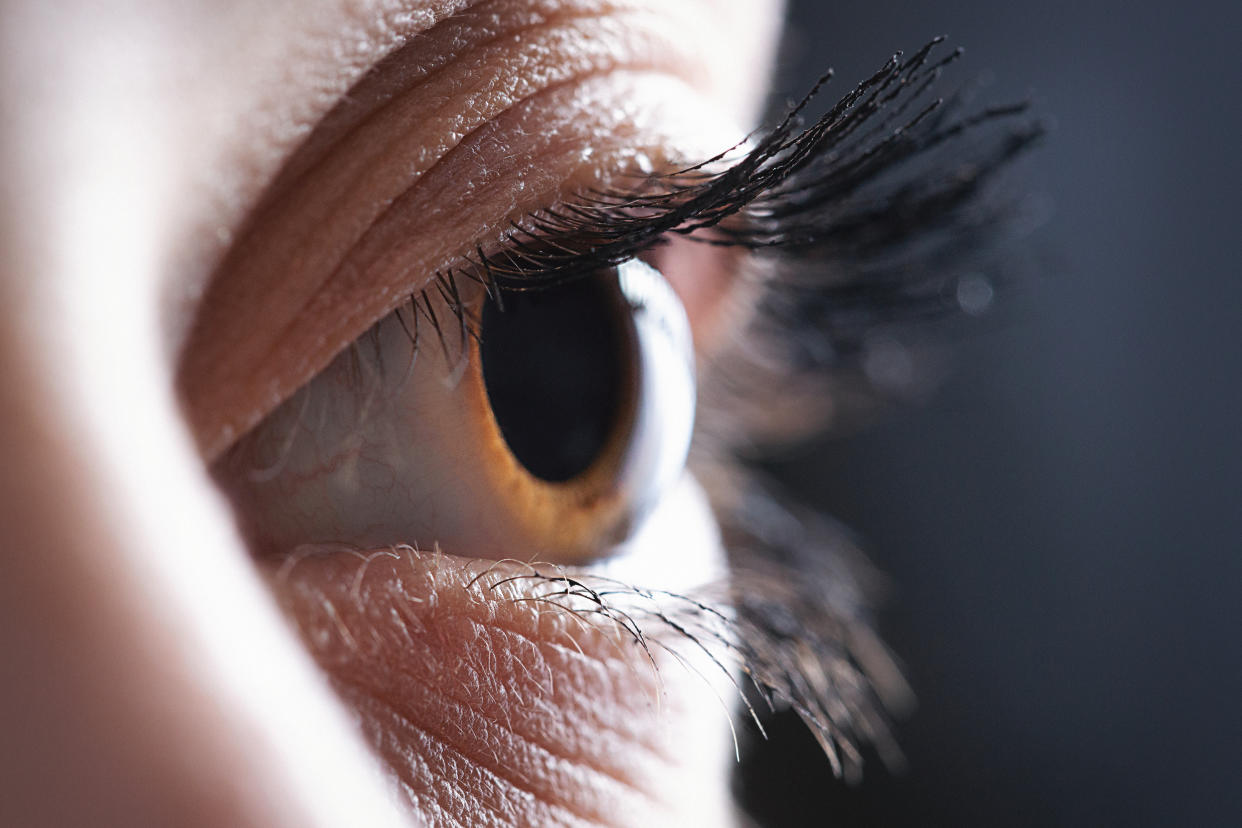What are LASIK surgery complications and how often do they happen?

Staffers at a Detroit TV station are grieving after their popular meteorologist died by suicide last week. Jessica Starr recently underwent LASIK surgery and suffered complications from the procedure. While it’s unclear if the surgery was a factor in Starr’s death, she repeatedly discussed her “challenging” recovery on social media after having the procedure done in October, per the Detroit Free Press.
Starr shared information about her surgery and recovery process in a Facebook video in November. In it, she said she was back to work — four weeks after her surgery — but “still healing.” She also mentioned that she was having issues with dry eye. “When the drops are in, I can see pretty clear, but then they fade quickly,” she said. In the comments, she later told a fan that “I’m dying over here…this recovery is brutal.”
Starr’s final tweet was in mid-November, and it addressed her recovery. “Yesterday was a struggle for me,” she wrote. “I really wanted to come back but need more time to recover. Please keep me in your thoughts during this challenging time.”
LASIK eye surgery is a surgical procedure done on a person’s eyes to improve their vision, according to the National Eye Institute. The surgery is done with a laser and permanently changes the shape of a person’s cornea (the clear front part of your eye). The hope is that after having surgery, a person will be able to stop wearing glasses or contacts, or to reduce their use of them.
As with any surgery, there are risks to having this procedure. Dry eyes can be an issue for the first six months or so after surgery, and that can reduce your quality of vision, the Mayo Clinic says. Patients may also see glares or halos, experience double vision, develop an infection or problem with excess tears, or, in rare cases, even lose their vision.
Dry eye is definitely the biggest potential side effect, Mina Massaro-Giordano, MD, co-director of the Penn Dry Eye & Ocular Surface Center and a professor of clinical ophthalmology at the University of Pennsylvania, tells Yahoo Lifestyle. “It’s quite common after LASIK,” she says. While this doesn’t happen to everyone who has LASIK, having an undiagnosed underlying condition that can dry you out like thyroid disease could increase your risk, she says.
“We tell our patients if they don’t have any dry eye beforehand, about 30 percent will develop dry eye,” Beeran Meghpara, MD, a corneal and refractive surgeon at Wills Eye Hospital in Pennsylvania, tells Yahoo Lifestyle. “Fortunately, the majority of those are very mild. Less than one percent can develop severe dry eye.”
Doctors tend to treat any side effects or complications situationally, Meghpara says. For example, with dry eye, a patient will likely be given artificial teardrops to help keep their eyes moist. In more severe cases, doctors may insert a punctal plug — a silicone or collagen insert that’s put into the corner of the eye to keep tears in the eye longer. “That usually is sufficient in the vast majority of cases,” he says.
Though it’s rare, some people can experience what’s known as neuropathic corneal pain. “When nerves are cut, as they are with LASIK, there are some people with severely damaged nerves that can experience intense pain,” Massaro-Giordano says. “After a procedure like this, some people can feel like their eyes are on fire 24/7. I’ve actually seen a few patients that are in such pain that they get to the point where they’re suicidal.” In those cases, Massaro-Giordano says that a patient is typically referred to a pain management specialist, who will likely give them medication to try to decrease the pain.
Still, Massaro-Giordano says that LASIK “for the most part is a safe procedure.” Meghpara agrees. “A complication after LASIK fortunately is very, very rare,” he says. If you’re planning to get LASIK, Meghpara recommends making sure you’re screened well beforehand. “Get a comprehensive eye exam with appropriate testing to make sure you are a good candidate,” he says. “The vast majority of complications happen in people who aren’t.”
Read more from Yahoo Lifestyle:
Grieving parents says priest called their son ‘a sinner’ at his funeral
Parents call for stricter gun laws in obituary for son who shot himself
Follow us on Instagram, Facebook and Twitter for nonstop inspiration delivered fresh to your feed, every day.


